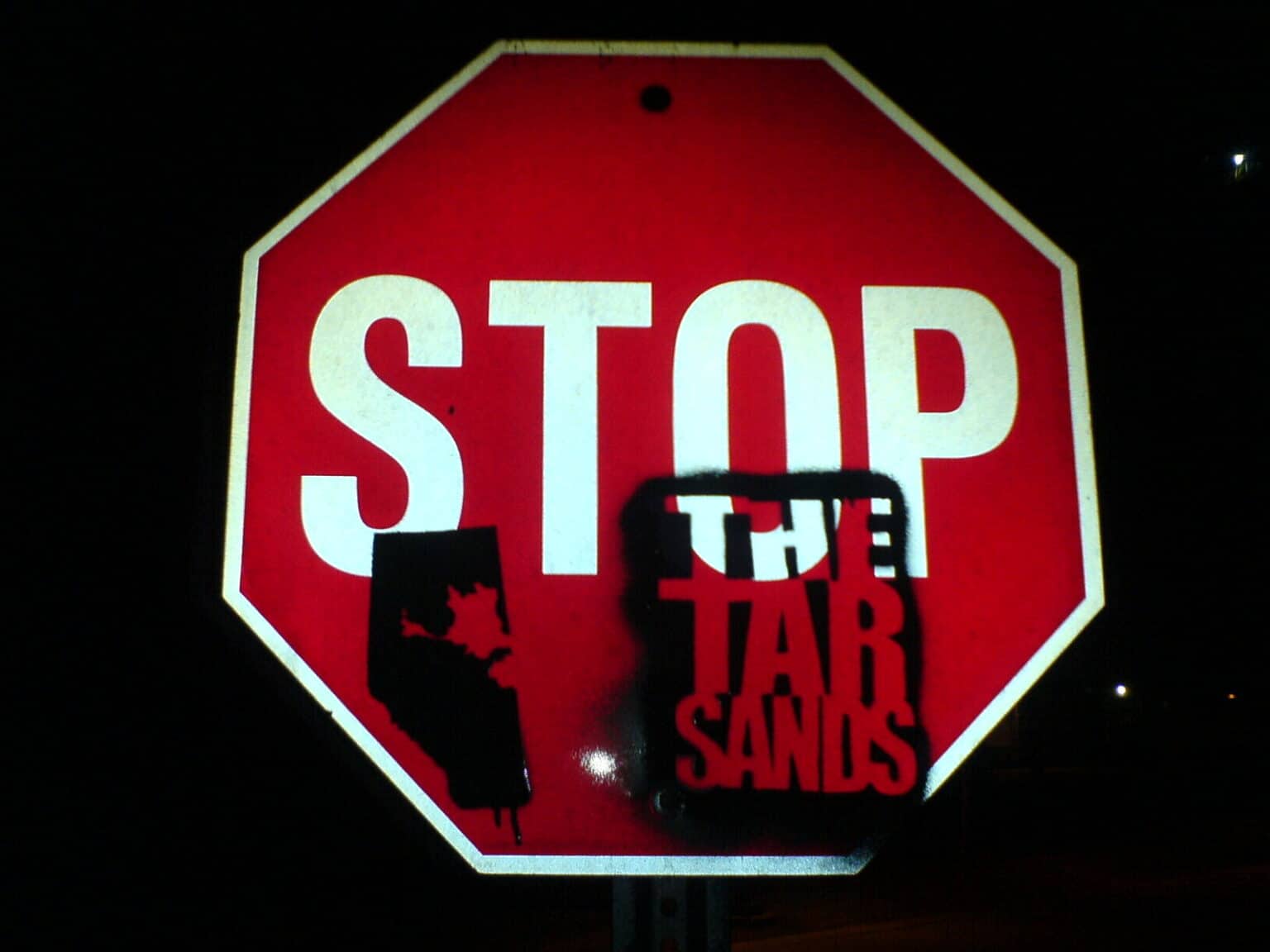In late March, the Alberta government ran a series of ads on Facebook promoting an oil sands pipeline expansion that could have a climate footprint surpassing that of the entire country of Panama.
“Once completed, the Trans Mountain Expansion will allow more responsibly-produced Canadian oil to reach key markets in Asia and beyond,” claimed one ad from the Canadian Energy Centre, which according to Facebook analytics reached an estimated audience size of over one million people. “And with global demand for oil soaring, the pipeline project is more important than ever.”
But certain facts were left conveniently unstated. The “responsibly-produced” oil that will be pumped through Trans Mountain could release 15 million tons of carbon dioxide into the atmosphere each year. That figure is larger than the individual annual climate footprints reported by 125 countries.
The organization that paid for the ad, and dozens of similar Facebook ads so far in 2022, was set up to spread pro-oil propaganda on behalf of the Alberta government. The three-member board of the Canadian Energy Centre, also known as the “Energy War Room,” is comprised of provincial cabinet ministers.
To top it all off, funding for the Canadian Energy Centre comes directly from the province’s tax on industrial polluters. A policy touted as lowering greenhouse emissions from Alberta’s oil and gas sector is instead paying for Facebook advertisements designed to expand that sector.
And there will be many more oil and gas ads to come in people’s Facebook feeds.
The Alberta government budgeted an estimated $159 million for the Canadian Energy Centre, along with “deficit and debt reduction,” in its 2022 Fiscal Plan. The province earlier set aside a budget of $80 million for the Canadian Energy Centre in its 2019 Budget, paid for by climate taxes on the province’s biggest polluters.
“It’s a ridiculously ineffective program,” Drew Yewchuk, a lawyer with the University of Calgary’s Public Interest Law Clinic, told DeSmog.
The program that funds the Alberta government’s oil propaganda is known as the Technology Innovation and Emissions Reduction (TIER) regulation. It requires industrial polluters that emit 100,000 tons of greenhouse gases or higher to pay a tax on their emissions.
The regulation applies to approximately 500 polluting facilities in Alberta, accounting for 60 percent of the province’s greenhouse gas output. Alberta’s 2022 Fiscal Plan describes it as “a centrepiece of Alberta’s approach to climate change and emissions management.”
United Conservative Party premier Jason Kenney touts this program as evidence the province is taking climate change seriously, saying last year in a tweet that “Alberta is already a leader in reducing emissions.”
Even critics have acknowledged this as progress. “Canada does have some claim to credibility on the climate action front,” reads a National Geographic story referring to the oil sands as the “most destructive oil operation” in the world. “As early as 2007, Alberta’s provincial government instituted a carbon tax on large industrial emitters, which has raised U.S. $350 million (C $463 million) for energy research.”
But while revenue from the program has supported provincial efforts to develop carbon capture and storage, clean energy and methane reduction technologies, that’s done little to slow the growth of Alberta’s emissions, which have increased 61 percent since 1990.
This is “primarily due to the increase in the oil and gas industry,” the federal government notes.
Far from fixing this situation, the carbon tax revenues that fund the Canadian Energy Centre are making the problem worse. “The money taken from carbon intensive industry for the supposed purpose of reducing emissions and controlling change,” Yewchuk argues, is instead being spent on propaganda “favouring more use of Albertan oil and gas, and thereby the release of more carbon emissions.”
That’s not entirely surprising, given that one of the Canadian Energy Centre’s directors is Alberta Minister of Energy Sonya Savage, who previously worked as senior director of policy and regulatory affairs for the Canadian Energy Pipeline Association. Before that, she spent nine years at the Calgary-based pipeline company Enbridge.
The Canadian Energy Centre also has financial links to other pro-oil groups with an active presence on Facebook.
Its registered office address corresponds to the Calgary law firm Burnet, Duckworth & Palmer LLP, the same law firm listed for Canada Action, Debunk Inc. and the Canadian Association of Petroleum Producers.
The Canadian Energy Centre insists it takes the challenge of fixing the climate emergency seriously. “We believe that the climate is changing, that human activity is contributing, and that we all need to do better,” it said upon its launch in 2019.
But it takes any opportunity it can to downplay the crisis.
“Recent events are a harsh reminder that whatever challenges climate change is creating, secure and affordable supplies of fuel and food remain essential and cannot be taken for granted,” it argued in another Facebook ad from March.
The Energy Centre has spent more than $300,000 so far on such ads—derived from tax revenue that’s supposed to go towards stabilizing global temperatures.
Perhaps it’s time to call Alberta’s carbon tax on industrial polluters what it truly is, argues Jeff Gailus in Alberta Views: a “world-class carbon reduction sham.”
Subscribe to our newsletter
Stay up to date with DeSmog news and alerts






